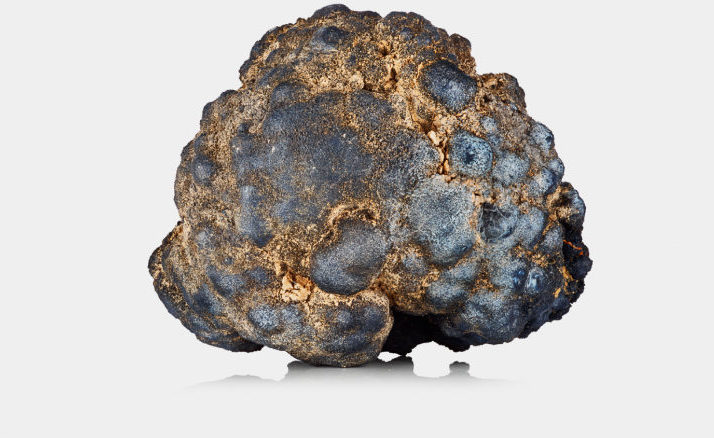
Products
Metals for building infrastructure, power generation, transmission, and batteries.
We’re scaling nodule collecting and onshore processing systems to supply lower-impact metals to modern economies.
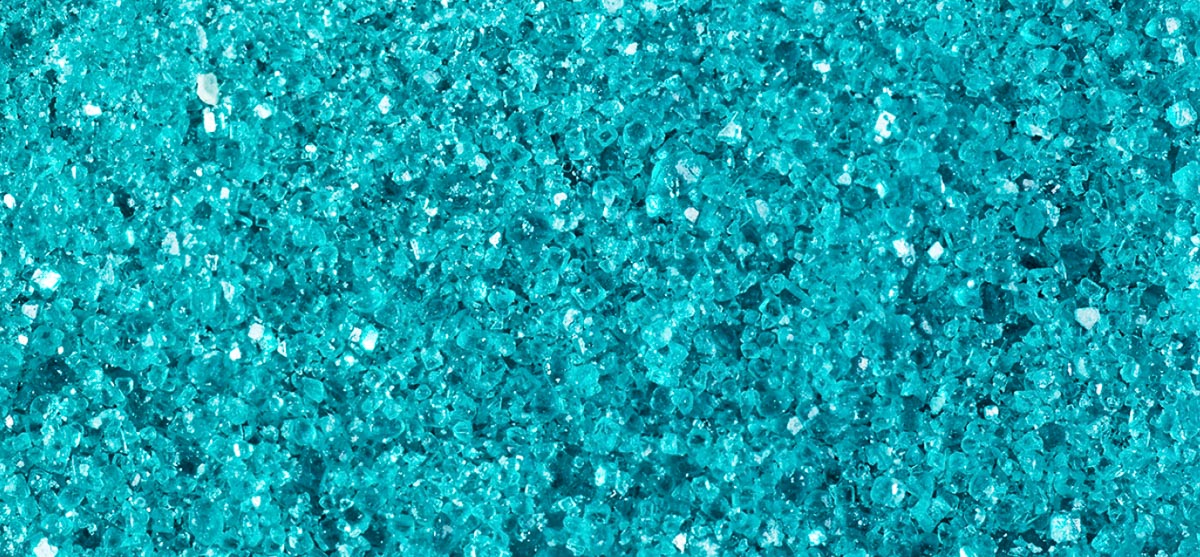
Nickel Sulfate
Nickel is critical to stainless steel production, turbines, and military-grade alloys. It also plays a key role in battery technologies for energy storage and electric mobility, enabling greater energy storage capacity and longer range for EVs.
As demand for battery-grade nickel soars, much of the current supply comes from rainforest mining in Indonesia and the Philippines. Polymetallic nodules in the Clarion Clipperton Zone (CCZ) represent the world’s largest known and lowest-impact source of nickel.
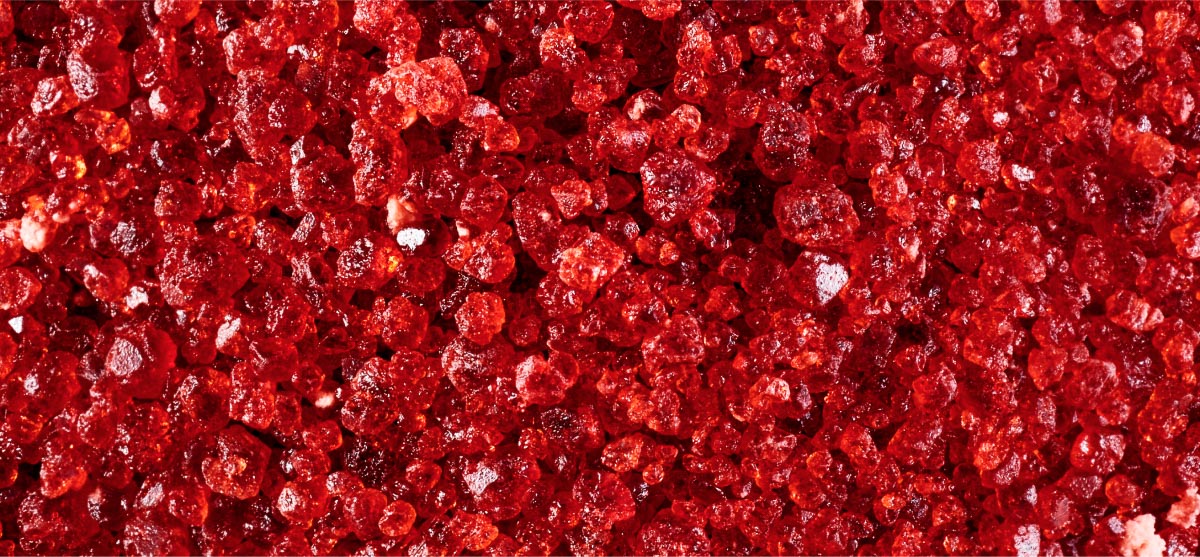
Cobalt Sulfate
Cobalt enhances the energy density, safety, and lifespan of batteries used in everything from grid storage to EVs. It is also essential to defense technologies, high-performance alloys, and aerospace systems.
TMC derives cobalt sulfate from nodules with significantly lower environmental and human impact. Unlike land-based mining—which produces toxic tailings and relies on child labor in some regions—our approach avoids deforestation and social harm.

Copper
Copper is essential to the modern economy—from EVs and renewable technologies to grid expansion, defense systems, and data centers.
From vehicle chargers to high-voltage lines, copper enables the flow of electricity and supports the infrastructure powering the energy transition. Yet the average ore grade is declining to just 0.5%, increasing land disturbance and toxic waste. In Chile, home to six of the ten largest copper mines, this disruption now threatens some of the world’s most diverse ecosystems.
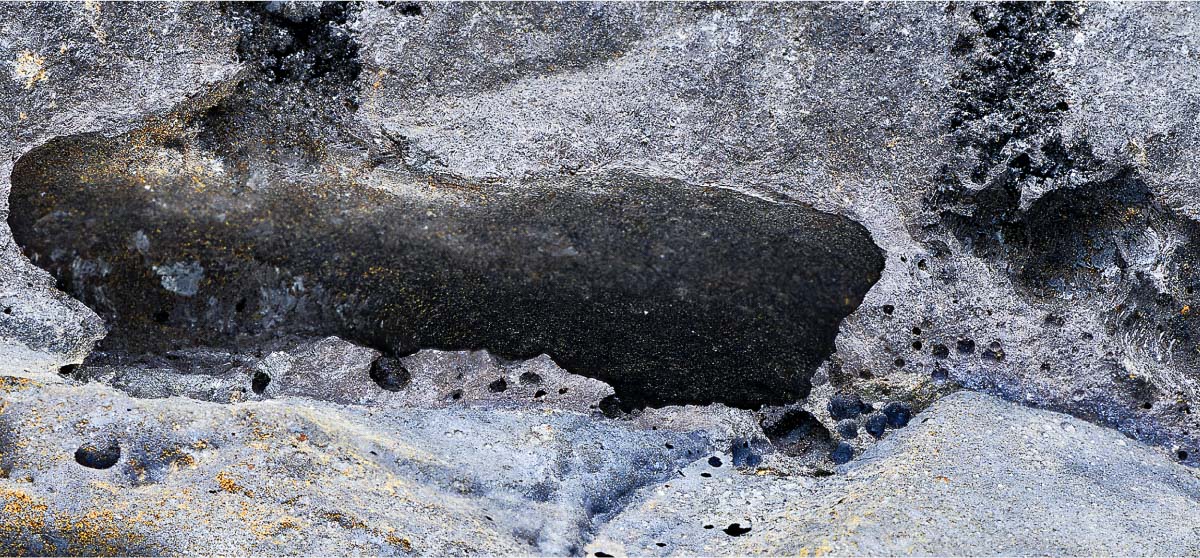
Manganese
Manganese is vital to global steelmaking and construction, strengthening the materials that support bridges, buildings, and rail systems. It also plays a growing role in battery chemistries, and is an ideal partner for nickel in battery cathodes.
South Africa holds 70% of global reserves on land, where mining increasingly encroaches on biodiverse ecosystems. Nodules offer a scalable, lower-impact supply of high-purity manganese.
A Billion Electric Vehicles
An electric vehicle with a 75 kWh battery pack and NMC 811 chemistry needs 56 kg of nickel, 7 kg of manganese, and 7 kg of cobalt, plus 85 kg of copper for electric wiring. One billion EVs—the equivalent of the world’s entire passenger fleet—would require 56 million tons of nickel, 7 million tons of manganese, 7 million tons of cobalt, and 85 million tons of copper—exponentially more than destructive mines produce now.* Producing these battery metals from polymetallic nodules is the best way to ensure we can meet the challenges of the climate crisis with the lightest environmental and social impacts.
*In 2019, 2.3Mt nickel (only 50% suitable for batteries), 18Mt manganese, 140Kt cobalt mined, and 12Mt copper was mined globally.
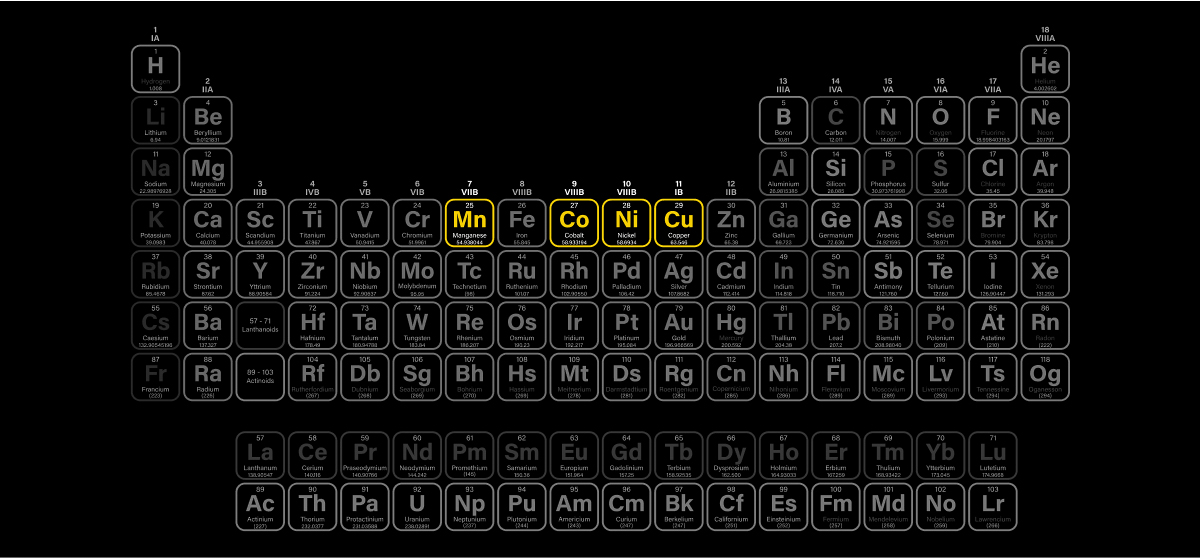
Closing the Loop
Once The Metals Company begins supplying battery metals for infrastructure, power, defense and clean energy, we’ll track our metals as they enter the supply chain. Within a decade of production, our aim is to recycle our metals in a closed-loop system of rental and redeployment partnerships with like-minded end users of our products. This circular supply chain will grow over time and, as the need for new metals decreases, recycled metals will become our primary focus.
We estimate that after three to four decades, there should be enough cobalt, nickel, copper, and manganese in the system to meet demand by recycling alone. At this point, The Metals Company will transition entirely to recycling and redeployment of our planet’s metal commons.

